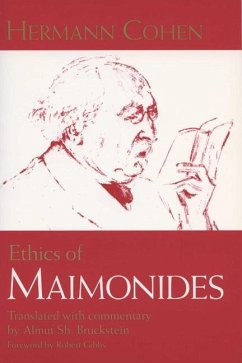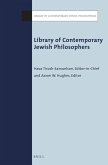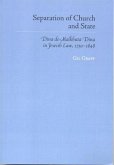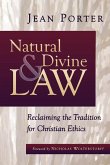Hermann Cohen's essay on Maimonides' ethics is one of the most fundamental texts of twentieth-century Jewish philosophy, correlating Platonic, prophetic, Maimonidean, and Kantian traditions. Almut Sh. Bruckstein provides the first English translation and her own extensive commentary on this landmark 1908 work, which inspired readings of medieval and rabbinic sources by Leo Strauss, Franz Rosenzweig, and Emmanuel Levinas. Cohen rejects the notion that we should try to understand texts of the past solely in the context of their own historical era. Subverting the historical order, he interprets the ethical meanings of texts in the light of a future yet to be realized. He commits the entire Jewish tradition to a universal socialism prophetically inspired by ideals of humanity, peace, and universal justice. Through her own probing commentary on Cohen's text, like the margin notes of a medieval treatise, Bruckstein performs the hermeneutical act that lies at the core of Cohen's argument: she reads Jewish sources from a perspective that recognizes the interpretive act of commentary itself.








